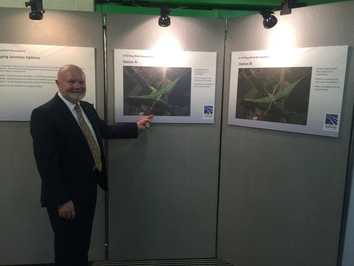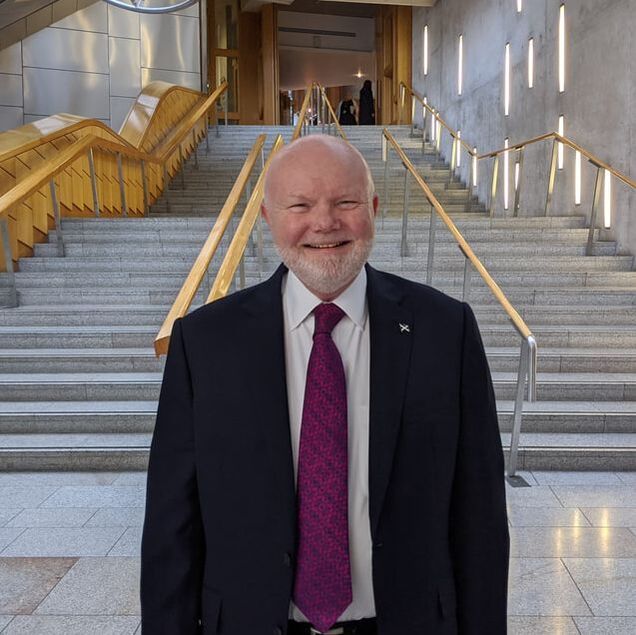|
Colin Beattie, SNP MSP for Midlothian North and Musselburgh, has welcomed a significant rise in the number of council houses and new social rented sector homes in development compared to last year, as well as an overall increase in housing supply – as revealed by National Statistics for Scotland figures published today.
While the Labour/Lib Dem Scottish executive built only six council homes during their time in office, council house building has been revived under the SNP, with right-to-buy scrapped. Central to the Scottish Government’s ambition to make Scotland “fairer and more prosperous” is the commitment to building at least 50,000 new affordable homes over this parliament. The latest analysis shows that new local authority housing starts and completions have risen (26% and 12% respectively) since last year, and more social housing is being built across Scotland. Commenting, Colin Beattie said: “It is really encouraging that housebuilding in Scotland is on the up – particularly when it comes to new social housing and council-built developments. “The number of social housing homes built between April and June this year was up 77% on the same period last year. And on top of this there was a 26% increase in new local council housing developments up to September 2016 compared to last year. “The SNP is committed to building 50,000 new affordable homes for many reasons, not least given the link between poor housing and poverty and the fact more homes will help improve people’s life chances, create jobs, and have a beneficial effect on health and wellbeing. This is in stark contrast to the Labour/Lib Dem coalition that was responsible for building only six new council houses throughout their time in office. While we still have work to do, I am confident that these latest figures show that the SNP is committed to working with partners to continue to increase the affordable housing supply.”
0 Comments
SNP MSP Colin Beattie is urging constituents in Midlothian to give their views on organ and tissue donation in the Government’s new consultation to help inform policy.
The 14-week consultation looks at various ways to increase the number of people being referred to the donation services in Scotland and the number of times when donation is ‘authorised’ to proceed. The consultation asks whether the current system for authorising organ and tissue donation should be turned on its head. Currently in Scotland, organ and/or tissue donation after a person’s death only occurs if they have given advance authorisation or if their nearest relative authorises on their behalf. A soft opt out, or deemed authorisation, system is being explored whereby donation can proceed if the person has not opted out or told their family they do not wish to donate. The study will also look at whether clinicians in Scotland should be given guidance on referring potential donors, so that the possibility of donation can be explored at an earlier opportunity. Commenting, Mr. Beattie said: “With the amazing help of donors and their families, NHS Scotland has achieved huge amounts in recent years. Since April this year, there has been 85 organ donations made after death compared to 60 over the same period last year. “However, there is more we can do for those who are still waiting for a transplant and it’s essential that we make sure we’re doing all we can. “The Scottish Government are asking the public whether a ‘soft opt out’ system is preferable to the current system where a person must explicitly opt in to donating. The government are monitoring progress in Wales carefully to learn lessons from their experience of introducing a new opt out system. “I would encourage as many people as possible in Midlothian to get involved in this consultation to help inform and shape the policy on organ and tissue donation. It saves lives and is one of the greatest gifts a person can give.” Scotland’s Lead Clinician for Organ Donation, Dr Iain Macleod, said: “I welcome this consultation as an opportunity to discuss ways of increasing organ and tissue donation and hear views from a wide range of people. “As a doctor working in the Intensive Care Unit at Aberdeen Royal Infirmary I know how sensitive and challenging organ donation can be, both for families going through the devastating process of losing a loved one and for NHS staff. However, I also know how important donation is in saving and transforming the lives of hundreds of transplant recipients in Scotland every year and also how much comfort it can give to donors’ families over time to know that their loved one has helped save the lives of others.”  Colin Beattie, MSP for Midlothian North and Musselburgh, attended the long-awaited public exhibition for the A720 Sheriffhall Roundabout on Tuesday. The exhibition displayed three emerging options for improving the movement of current and future traffic along the A720 between Gilmerton and Old Craighall. The exhibition is part of Stage 2 of the three-stage assessment process that will consider engineering, environmental, traffic, and economic factors before deciding which option will best serve the area’s needs. Throughout the assessment process, consultation is carried out with a large number of stakeholders and interested groups. Commenting, Mr. Beattie said: “To my untrained eye, Option A appears to be the best solution for the roundabout. However, any one of the options will be a welcome improvement and hopefully provide an end to Sheriffhall’s longstanding problems. “I look forward to continuing to work with and hear the public’s opinions as these three options are taken forward for further investigation.” |
Parliamentary WorkArchives
May 2024
Links |




